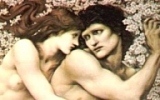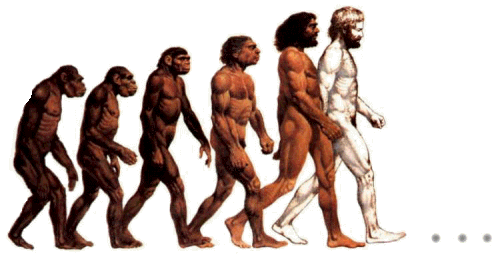|
Selected Writings from Peter’s Journal on Affective Feelings ~ Emotions and Calentures
I vividly remember my reactions when I was first told of my son’s death. (...) A woman I knew, who was involved in the ashram organisation, came up to me as I sat at the table and said she had something to tell me. ‘Your son has been killed in an accident.’ Immediately a wave of grief engulfed me, as though it saturated my body. I began to cry, so deeply that it really did feel as though I would sob my heart out. After what must have been only a minute or two, I then remember a deep feeling of loss – ‘I won’t ever see him again, he won’t be around in my life – and I will miss him!’ The crying continued for a few more minutes and then a numbness came over me which was to last for a few hours until I became involved in the practical things that needed to be organised – contacting his mother, organising travel, etc. This intense wave of grief was to return several times later in the day, but I recall thinking how calmly I was doing whatever was necessary. There was still a deep feeling of loss that he would not be in my life any more, that he would actually not be around any more. What was evident, even then, was that a large part of the grief I felt was really the fear that death had struck so close to me! That one day I, too, would die. When I arrived at the school where he had died, I found a veritable sea of emotions. His mother was overcome with grief, the staff swamped with grief and guilt, his friends and peer group confused as to how to respond, while the younger students seemed the least emotionally affected. I was not interested in the details of his death at all, as any questioning would only involve guilt and blame, and the deep feeling of loss was already enough for everyone. I found myself coming back, again and again, to the fact that he was simply not around any more. Peter’s Journal, ‘Death’
It was the beginning of getting down and getting dirty to look unabashedly at all the emotions, feelings and instinctual passions that arise between men and women. To talk about and thoroughly investigate love, jealousy, dependency, sex, authority, power, gender roles, etc. without any conflict or battle. Our investigation became an exploration of the Human Condition it self and how it was manifest in a male body and how it was manifest in a female body. We became fascinated with finding and analysing the differences rather than continuing to blindly and stubbornly defend them. Which of these differences were merely socially imprinted, which were instinctually programmed, and which, if any, were genuine? This investigation and fascination proved to be the beginning of the end of conflict, and this was despite the fact that at many times the findings were uncomfortable, confronting, disorienting, bewildering, and at times appalling. (...) The layer of programming beneath the social identity is the instinctual self – who we ‘feel’ we are, consisting of a primitive sense of self and the survival instinctual passions of fear, aggression, nurture and desire, instilled by blind nature to ensure the survival of the species. This instinctual programming has been held as inviolable and unalterable, and, as such, has remained un-investigated up until now. The only superficial ‘tinkering’ that has been undertaken to date has been to emphasise the so-called ‘good’ instinctual passions of nurture and desire and repress the ‘bad’ instinctual passions of fear and aggression. The social application of morals and ethics provides the ‘carrot and stick’, but police, laws and armies are ultimately required to keep the instinctual passions in check. The whole of our supposedly civilised world is still, at the very core, based on the suppression and control of these primitive instinctual passions. When this veneer of suppression or control substantially breaks down we have riots, wars, anarchy and genocide resulting. Actual Freedom offers for the first time the experiential evidence that this
instinctual programming can not only be radically altered, but completely eliminated together with the identity that forms
thereof. The price paid is a complete eradication of one’s identity – the alien psychological and psychic entity within the
body. This eradication allows an actual freedom from the instinctual passions that are evidenced as the Human Condition of malice
and sorrow. Being free of malice and sorrow, one is able, for the first time, to be actually innocent, pure, perfect and
benevolent, to wallow in the sensual delights of the actual world – this paradisiacal magical physical universe.
Love, particularly in the early heady days of a relationship, evokes an obsession to be in the other’s company – here at last is one’s ‘soul mate’, someone to spend the rest of one’s life with. No more loneliness. Well, as we all know, this never works out, even if some sort of friendship or bond remains after the fire of love burns out. If, after some time, the couple is separated by death or other circumstances, I have often witnessed that the one who is left behind pines away, his or her life finished, meaningless. This has always appalled me, and I have seen it happen with my mother and countless others. When one’s partner goes, so does the reason for living for the other. Often such people either live in misery and loneliness, or die very soon after the death of the partner. Peter’s Journal, ‘Love’
For Vineeto, the investigation was into the female conditioning, and sex without love proved quite daunting. All of the religious morals and society’s values condemn a woman who enjoys sex as a whore and a slut: so guilt and shame were emotions to be faced on our journey. If she lifted the lid of restraint and repression, would she run amok? No. What we discovered was – surprise! surprise! – that we are equally sexual human beings. We found no essential difference in our libido, our enjoyment, our orgasms and our delight at the whole sexual experience. Digging into the female sexual instinctual passions also proved illuminating. Although Vineeto had largely come to terms with the desire to have children and had been sterilised when quite young, the instinctual behaviour still continued. We contemplated the fact that blind nature has equipped the female of the species with an instinct to procreate. This means she needs to attract a man to impregnate her, and preferably a physically strong one, in order to then protect her and the offspring. Then comes the need to keep the man around to provide food, shelter and defence. To accomplish this, being physically weaker in general, women had to develop what is known as feminine guile – a series of emotions, games, seductions, ploys, etc. Even if a woman had a man, this offered no security, so she had to continuously hone and test her seductive powers on other men in case they were needed at any time. She knew that when these powers failed, when beauty faded, when old age set in, she was useless, on the scrap heap. This behaviour is all too evident in current times: women’s magazines bear testimony to this, with their endless beauty and seductive tips. The threat of failure or loss of male protection meant that the support of the other women around the campfire was all she could ultimately fall back on; hence the woman’s loyalty to the ‘sisterhood’ is much stronger than her loyalty to her man. The elimination of the beliefs and taboos around sexuality and their related emotions meant that each of us had to give up all that we thought was essential and set in concrete in the end. My very maleness and her very femaleness. Peter’s Journal, ‘Sex’
The aim is to bring myself out of my inner world of the psyche into the actual world of my senses – to become fully engaged in the actual world as much as possible. It takes constant effort and vigilance at the start not to be sucked back into misery and sorrow, not to resort to malice. The usual constant interacting with other similarly afflicted people creates a common ‘psychic world’ of fear, malice and sorrow as everyone battles it out for survival. It all, of course, simply happens in the imagination. This world appears to be real because of the commonly shared emotions and feelings, but it is not actual, factual. Many people I know are constant travellers in this psychic world and have developed quite an expertise in interpreting the many and varied highways and byways. Therapists, astrologers, psychic readers and mediums are the experts in this world with the spiritual teachers as the indisputable Masters. I simply stopped believing (or trusting) what everyone else told me was right or good or real and used ‘how am I experiencing this moment of being alive now?’ as my guide. The thread that holds it together is the knowledge of the peak experience, when I know and experience everything as perfect. Everything really is and always has been perfect except for the churning self-centred thoughts and instinct-fuelled feelings and emotions. It is as though the psychological and psychic entity creates a film or skin over every thing I see, feel, hear, taste and smell. This reminds me of the similar experience of the feeling of ‘shackles’ on me that prevented my freedom. Those shackles are real in the ‘psychic world’ but, as I have discovered, they are not actual. Peter’s Journal, ‘Intelligence’
The fear that I faced at the start of this process of ridding myself of a psychic entity, and on the way through was psychic fear – fear that was present in my psyche. It is the very same fear that ruled my every action and thought for most of my life. The: ‘what does that person think of me?’, ‘what am I going to do next?’, ‘what if something goes wrong?’ – the instinctual passion of fear I was born with. The fear we transform into doubt, and more doubt. I remember calling it the ‘what if’ syndrome at some point. In the face of it the most usual reaction is to freeze – not do anything. I saw it as a bit like when you drive along a country road and a rabbit appears on the road. Blinded by the headlights he freezes, and splat – dead rabbit. The only difference for me when I met Richard was that wobbling around in doubt or freezing in fear meant simply more of the same – prolonging my ‘normal’ life of suffering and confusion. The suffering of knowing that something was seriously wrong in my life but staunchly denying it out of pride, or hoping that the latest guru or belief would work, when deep inside I had already seen it wouldn’t work. The confusion I was in at the time was because I had seen ‘behind the curtain’ of the spiritual world. I had seen the Gurus for what they were, and I had started to see that it was all the same ‘old time religion’. The facts didn’t gel with the beliefs and there was a certain discord; a ‘Something’s not quite right’ – not that I knew what it was at the time. So when I met Richard I found myself saying ‘I’ll give this a try, and I’ll make it the most important thing in my life’. That, as I look back, was my innate intelligence operating – the ‘if it doesn’t work, throw it out and find something that does’ or ‘don’t just freeze in the headlights’. Common sense, really. It wasn’t courage – it was common sense. I also had to retrieve my will and not ‘surrender’, leaving it up to Someone else or Existence – some imaginary roll of the cosmic dice. ‘Leaving it up to Existence’ is to accept being malicious and sorrowful – the dice are in fact loaded that way. Peter’s Journal, ‘Fear’
So the achievements of Cro-Magnon are indeed extraordinary but obviously we are still trapped by the primitive behaviour patterns and emotional responses of our ancestors, the very people whose ‘Wisdom’ we hold in awe and reverence. And nowadays the more ancient, the greater the wisdom is thought to be. We are still at core cavemen and women with their same primitive beliefs and instincts, but now we live in comfort and, in most cases, safety. Our knowledge of the physical world, and access to and ability to process information, has had an astounding quantum leap forward in this past 100 years. These times bear no resemblance to the times of Plato, Socrates or Buddha and, as such, their values and opinions have absolutely no relevance now. It then became blindingly obvious to me that the past could hold no solutions. And all the revolutions trying to find ‘new’ solutions to violence and misery are simply re-runs of the past failed attempts, doomed to run their cycles of failure.
But in my life the facts are that I haven’t found it necessary to fight for food, to capture and rape women, to protect my children by using violence, to be part of one group for protection and to fight another group for territory or sport. This behaviour is simply becoming redundant in most parts of the world now. Peter’s Journal, ‘Evolution’
I am no longer continually run by emotions or feelings like sympathy, empathy, love, compassion any more – they are a failed cop out, a film I used to put over things to avoid seeing the actuality of my behaviour, and of doing something about it. Now that I know that there is an alternative that works, and that malice and sorrow is optional for people, I regard those who reject this alternative as suffering needlessly and inflicting suffering on others needlessly. One of my prime motives has been that I saw my very interactions with other people as causing pain and suffering in them, even when I was being ‘good’ and ‘loving.’ To suffer myself is one thing – to inflict it on others is malice. I care enough to eliminate my selfish malice and sorrow and I will stand no nonsense from others about not being ‘caring’; when what they really mean is not being ‘loving’. Like Richard, I’ll stick my head above the parapet and say, ‘All you have to do is get rid of your ‘self’ entirely, and then you will enjoy unparalleled actual peace for yourself twenty four hours a day, every day.’ And as more and more people care enough, peace will gradually spread through the world like a chain letter. However, I am under no illusion that most people will keep with the ‘tried and failed’, leading a dull second-rate life of trying to repress their emotions, of being as good as they can. And yet others will continue the futile aim of transcending their emotions with meditation, right thinking, and other ‘spirit’-ual devices. Most will indeed ‘turn away’ and peace may well take a few generations to establish but at last it is actually possible for those who want it. Peter’s Journal, ‘Peace’ Freedom from the Human Condition – Happy and Harmless Peter’s Text ©The
Actual Freedom Trust: 1997-. All Rights Reserved.
Disclaimer |


